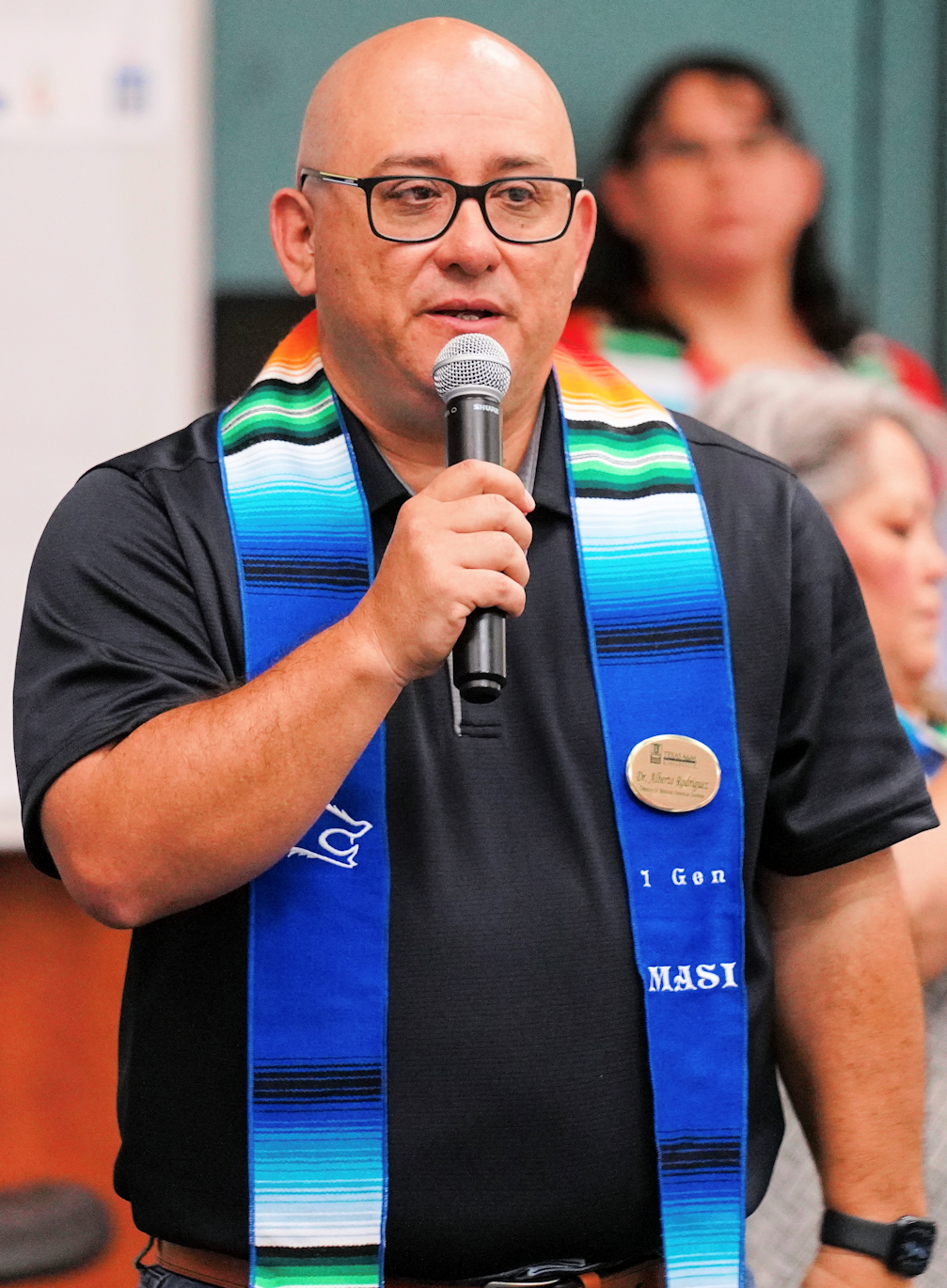Dr. Alberto Rodriguez
Dr. Alberto Rodriguez
KEYNOTE SPEAKER
Alberto Rodriguez, Ph.D
Associate Professor of History
Director, Mexican American Studies Institute
Texas A&M University-Kingsville
About Dr. Rodriguez

Dr. Alberto Rodriguez was a first-generation college student and his philosophy has been to promote critical thinking. He has taught first-generation students, Deferred Action for Childhood Arrivals (DACA), and non-traditional learners/students.
Rodriguez has also published several books, including Mexican American Baseball in the Alamo Region (Charleston: Arcadia Publishing, 2015), “Ponte El Guante! Baseball on the US/Mexican Border: The Game and Community Building, 1920s-1970s,” The Journal of the West (Fall 2015), “Spanish Southern States Recording Expedition,” with Rene Torres, Journal of Texas Music History (Fall 2016) and “Africana Aesthetics: Creating a Critical Black Narrative from Photographs in South Texas” in Africana Theory, Policy, and Leadership: A Social Science Analysis edited by James L. Conyers, Jr. (Transaction Publishers: 2016).
His upcoming projects, Urban Borderlands: Anglos, Mexicans, and African Americans in South Texas 1929-1964 and Rancho La Union: A Transnational History of the Borderlands are a comparative multi-ethnic analysis of the Lower Rio Grande Valley, focusing on race relations in American and Borderland society with a specialty in Mexican American and African American encounters.
Dr. Rodriguez is also managing editor of The Journal of South Texas History and coordinator of publications for the Institute for Architectural Engineering at Texas A&M University-Kingsville.
Rodriguez earned his Ph.D. from the University of Houston in 20th Century American History with a minor in Women’s Studies. He teaches courses on Latin@ History, Mexican American History, Chicana/o History, Texas History, and African American History.
Although he was born in Greeley, Colorado, Dr. Rodriguez calls Edinburg, Texas, home.
Page last updated July 5, 2023.


